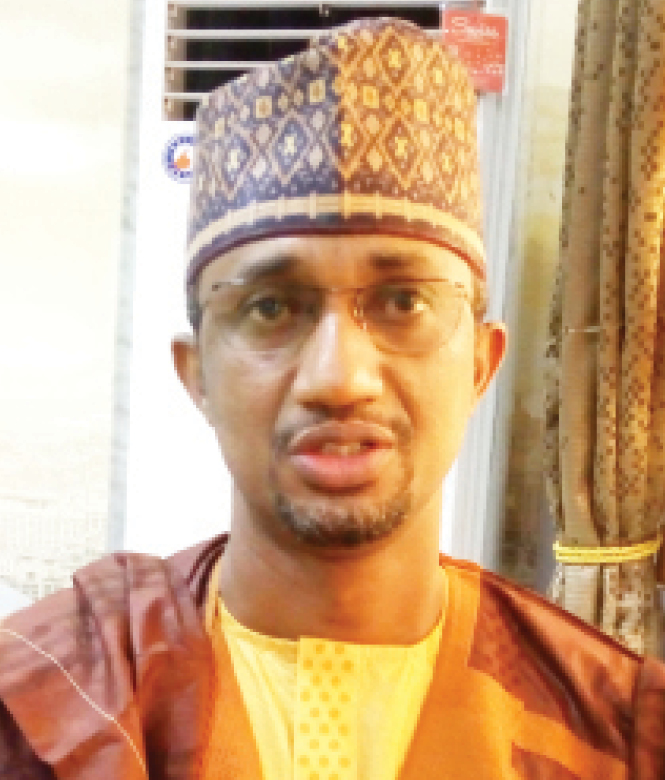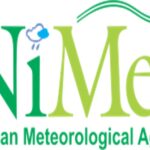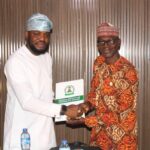The Director-General of Nigeria Meteorological Agency (NIMET), Prof. Mansur Bako Matazu, speaks on efforts of the agency to enhance aviation safety through regular, up-to-date weather information to guide flight plans and deepening presence in other sectors as weather affects all strata of the national economy. Excerpt:
What would you say is the major challenge confronting the Nigerian Meteorological Agency (NiMET) since you came on board?
I came on board in April this year and the Nigerian Meteorological Agency (NiMET), being a service provider especially in the aviation industry and also a weather and climate service provider in the general socio-economical arena of the country, was faced with several challenges. The major challenge I encountered immediately on arrival at NiMET was the issue of vandalisation of our airport safety equipment across the country.
- Insecurity, separatist agitations undermining Nigeria’s unity — Ex-COAS Ihejirika
- Buhari congratulates winner of 2021 Nobel Prize for Literature
To reduce the risk of negative weather phenomena like low-level wind shear systems and other possible moving weather systems, NiMET installed instruments that are very sensitive and capital intensive like Doppler radar system and Runway Visual Range (RVR) across all our 24 airports. And specifically for the four major airports, we have independent weather forecast offices.
Some of these instruments have sensors installed in them. Even at airports that have perimeter fences, we have very serious challenges of vandalization and I will give an example. The Low-Level Windshear Alert System (LLWAS) has eight sensors, if more than three are down, it will not give a clear picture of the wind shear and this is a major hazard to aircraft either landing or taking off.
But, we came up with a model of integrating communities around in securing some of these installations and I can tell you since I came on board, I instituted a task team on airport operations and as part of the task team, we have our safety officers who engage the neighbouring host communities, involving them in securing equipment. We provide the communities with some incentives and welfare to help us do that.
On the other hand, we came up with an alternative method of monitoring and forecasting wind shear without using a sensor; we use a Numerical Weather Prediction (NWP) system.
we have spent a lot of money in upgrading our Numerical Weather Prediction Department with the assistance of the Weather Meteorological Organisation (WMO). Of these, we have what is called the Satellite Milecasting Facility which is giving us a diagnostic analysis on any cloud over Nigeria and we believe we can also detect the possibility or potential of any airport being affected by wind shear.
So, we are complementing these two and that is giving us very clear result. In the first phase, we are earmarking 10 airports and out of these, three have been addressed now and we are doing the other two in the next two weeks. We intend to cover the 10 airports before the end of the year and by the first quarter of next year, we are going to address the remaining airports.
We are very hopeful that by June 2022, we want operations at our airports to be more than 95 % optimum and we are very confident that the aviation community is very happy with our performance and based on this, our aero meteorological service. We have met the International Organisation for Standardisation (ISO) 9001 2015. We are the first meteorological service in Africa to achieve this and because of the feat, the World Meteorological Organisation (WMO) is recruiting NiMET to assist other African countries to move forward. Presently, we have the Gambia, Malawi, and Mozambique.
Do you plan to commercialize some of the services you render to sectors like maritime, agriculture?
I always tell stakeholders that weather is life. Weather has a lot of things to do with human beings and in the socio-economy of our country, all of them are weather-sensitive and NiMET is the only agency that can advise on the weather. We do this advisory in three tiers; one, we provide public weather service at no cost. For instance, the daily weather forecast, seasonal climate prediction, monthly, weekly, and the three days’ updates we are giving to water, road, and air services are under this public service.
The second tier is the support service that we offer to Ministries, Departments, and Agencies (MDAs) of government in agriculture or any major project. Before they do anything, they rely on us for weather predictions. We render these services to organizations at no cost.
The third tier is tailor-made. We provide tailor-made services to agriculture – we downscale seasonal information and updates. We have deployed a lot of instruments and we have also empowered our crew to handle point forecasts, which has helped to improve farm production and reduced a lot of risks in the system.
We also partner with the Nigerian Communications Commission (NCC) to develop mobile weather meteorology by providing specific forecasts to farmers.
Also, we do a service that we call a cutting calendar for farmers. In each local government, we can give a calendar based on the forecast of the year; what you should do from land clearing and harvesting. We have seen more than a 30 % increase in yield and quantitatively, we are conducting research by employing our weather and climate information services.
Another sector that is paramount to us is the marine sector; Nigeria is blessed, we have vast land, forest, and also we have water. We have about 800 kilometers of coastal land, which includes the Niger Delta area.
As aviation relies on per minute, per second weather information, that is how maritime also relies on us.
Unfortunately, they take their marine weather service from the United Kingdom Meteorological Office, which is causing Nigeria to lose hundreds of billions annually.
We have procured four automatic marine stations and we are in talks with the Nigerian Ports Authority (NPA) and the Nigerian Maritime Administration and Safety Agency (NIMASA). I think the time is ripe for us to seal this Memorandum of Understanding (MoU) with them to begin to provide this service to the industry because the country is losing a lot of revenue by not providing this.
How much do you project to earn annually through the commercialization of your services?
We are doing very well in aviation now, which gives us more than 90 % of our Internally Generated Revenue (IGR), and even at that, we are not charging commercial rates. We are charging as cost recovery, which is to sustain the operations.
Our intention is to move from the 10 % revenue we get from other sectors to about 50 %. That is, we intend to have 50-50 % revenue from aviation and other sectors.

 Join Daily Trust WhatsApp Community For Quick Access To News and Happenings Around You.
Join Daily Trust WhatsApp Community For Quick Access To News and Happenings Around You.
